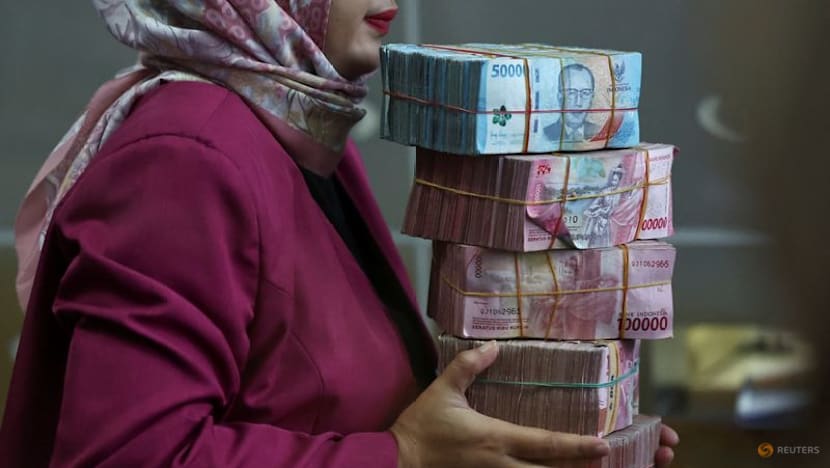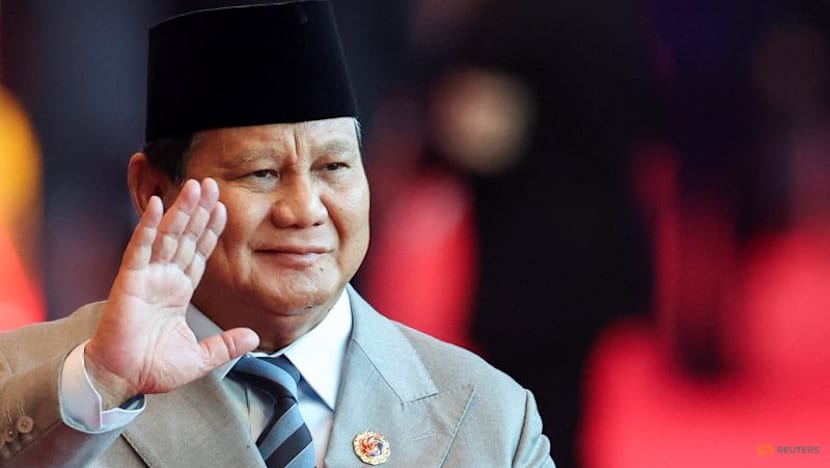Commentary: Indonesia’s U-turn on rupiah redenomination was the right move
As practical as the reasons to lob a few zeros off the rupiah are, the timing is not ideal, says political analyst Hasan Jafri.


This audio is generated by an AI tool.
SINGAPORE: Anyone travelling to Indonesia has to be skilled in arithmetic gymnastics when exchanging foreign currency into the local rupiah. The temporary euphoria created by the illusion of becoming an instant millionaire is soon replaced by the agony of carrying wads of cash and confusion about the real cost of goods and services. In other words: a headache.
Indonesia has an abundance of zeros in its currency, with 100,000 rupiah being the highest denomination. That single currency note, worth US$6, can only fetch a meal for two at a warung in Jakarta, while a tourist in Bali will reach for another beer just paying the bill. For a small, cash-driven business, a standard 12-digit calculator just won’t work.
Earlier this month, Indonesia’s Finance Ministry included plans to redenominate the rupiah as part of the 2025 to 2029 masterplan. Like in 2013 when the idea was last mooted, improving economic efficiency, maintaining stability and increasing the rupiah’s credibility were cited as the reasons to undertake this complex task.
However, within weeks of the disclosure, Coordinating Minister for Economic Affairs Airlangga Hartarto said the plan had not been discussed and won’t be anytime soon.
Successive Indonesian leaders, going as far back as Sukarno, have underscored the need to redenominate the currency to promote efficiency and to signal confidence in the currency. As practical as the reasons to lob a few zeros off the currency are, the government is right to take the issue off the table – for now.
ZEROS CAN COST POLITICAL CAPITAL
Leaders whose political runways are short because of age or national dynamics tend to err towards front-loading policies, especially ambitious ones.
In President Prabowo Subianto’s case, he will be 78 years old in 2029 when elections are next due, with plenty of contenders ready to take over from him. His Cabinet, which is the country’s largest since the 1960s, reflects the compromises he has made to become president.
His short runway and a grand coalition in the House of Representatives have allowed Mr Prabowo to execute several high-priority policies early and simultaneously. He wants the economy to grow by 8 per cent annually, requiring major reforms. He is giving the military a larger say in politics and a bigger budget to expand and modernise at the fastest rate in decades.
And his flagship policy – to provide free meals to children and pregnant women – has consumed both financial and political capital.
This ambitious agenda has also tested the administration and the bureaucracy’s skills in just one year. Already there are delays, policy U-turns, cost overruns and execution failures. Case in point are the cases of food poisoning and unavailability of vendors in the meals-for-kids programme.
Still, Mr Prabowo has considerable public support with a 78 per cent approval rating by pollster Indikator Politik Indonesia. His Achilles heel is economic management. The public support – and the support of his grand coalition – may disappear should a policy as sensitive as redenomination falter.
ECONOMY NOT READY FOR DRASTIC CHANGE
Redenomination is usually undertaken when a country is battling hyperinflation and needs to restore confidence in the economy and the currency, like Zimbabwe and Argentina did.
But countries can also choose to redenominate the currency when inflation is low. This is so that they can manage the risk of inflation if businesses round up prices after redenomination, even though the actual value of the currency remains unchanged.
Türkiye took off six zeros from the lira in 2005 when inflation was moderate by historical standards. Indonesia’s inflation rate of 2 to 3 per cent is low by historic standards and within Bank Indonesia’s target range, giving the central bank cushion to manage price increases.
However, the process of redenomination is not straightforward. Türkiye took three years to transition. The Indonesian government will have to ensure that it can seamlessly manage the process, but also ensure it can manage monetary conditions in a volatile global environment.

Here’s where Indonesia is weak. The 8 per cent decline in the rupiah’s value against the US dollar in Mr Prabowo’s still-young term is not a sign of confidence.
The decline in the rupiah’s value is partly driven by external factors, but much of it reflects scepticism about Mr Prabowo’s ability to balance the books while pursuing a spending-heavy economic and social agenda. Without such confidence, redenomination can cause a further fall in the value of the currency and stoke inflation, rather than tame it.
Indonesia can also learn from the free-meals programme, where intentions are right, but execution is patchy. To redenominate the rupiah, patchy just won’t cut it.
For it to be a success, first, there must be extensive public education to build trust with consumers and investors. A currency is not just a store of value but also a gauge of confidence.
Second, Bank Indonesia will need plenty of lead time to prepare – from printing new bank notes to adjusting financial settlement mechanisms – before it can start the process. Türkiye took three years to fully transition to the new lira; Indonesia won’t be much different.
With so much riding on what superficially appears to be a matter of a few zeros, Indonesia is right to delay the redenomination. Indonesians are already skilled in arithmetic gymnastics; they can wait a bit longer to cast a few zeros aside.
Hasan Jafri is a Singaporean analyst who advises clients on political and policy risk. He writes a monthly column for CNA, published every third Wednesday.
















